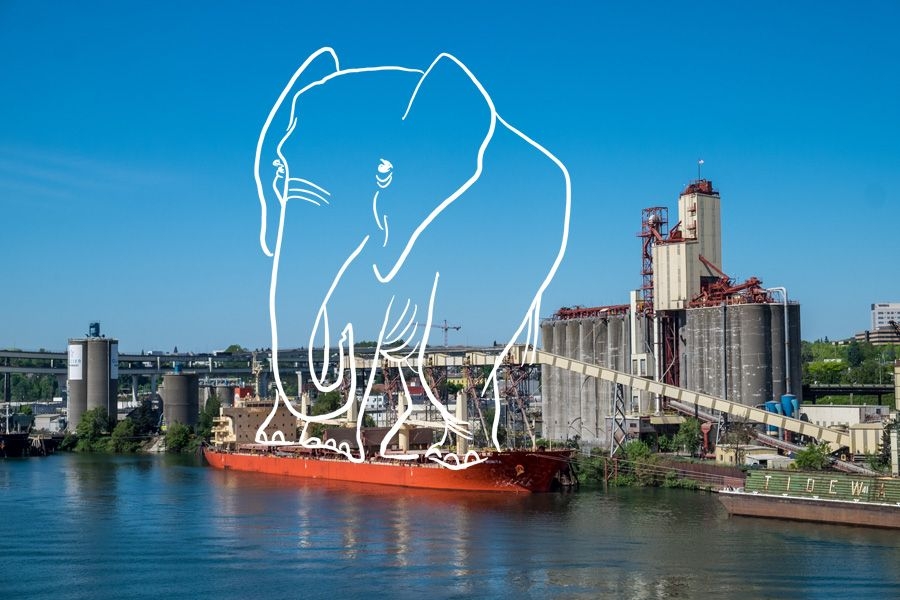Vigor Industrial is working with the Oregon Manufacturing Innovation Center and other partners on a solution to toxic ship coatings.
In our June issue I wrote an article about greenhouse gas emissions from ships and planes. That piece quotes Keith Chapman, Vigor Industrial’s director of manufacturing strategy, on bunker fuel, the stuff ships rely on. “It’s crude oil that came out of the ground and has nothing done to it,” Chapman said. “It’s dirty stuff.”
During our interview, Chapman told me about another huge environmental challenge for the maritime industry:
To get rid of barnacles and seaweed that slow boats down, builders apply an “anti-fouling coating” to the bottoms of the ships. That coating, Chapman says, is essentially toxic paint. The primary component is copper, which kills off marine life.
Chapman used a powerful analogy to illustrate the magnitude of the problem:
“There are millions of manmade ships in the ocean. The total weight of ships in the ocean is now greater than the total weight of fish in the ocean.”
“If you think of ships in the ocean as a species, that species is larger in size than all of the fish, and all of that species is coated with poison. It needs our attention.”
Vigor is using a relatively benign vinyl coating for two aluminum ferries it is building for the San Francisco Water Authority. But for large-scale ships, Chapman says, “there is not a good economically feasible solution other than paint systems that are essentially poisonous.”
A solution may emerge from a new partnership between Vigor, several other companies and the Oregon Manufacturing Innovation Center (OMIC). That team is looking into stainless steel coatings that eliminate the need for paint, Chapman says.
Citing proprietary concerns, he declined to disclose further details but said he’s “really hopeful it is a technology we see make its way in the mainstream.”
But as he noted in the original greenhouse gas emissions article: “The shipping industry is a very old industry and slow to change and has a long way to go.”
In related news: Bloomberg reports on an initiative out of China aimed at reducing greenhouse gas emissions from oil-based paints used on shipping containers.
To subscribe to Oregon Business, click here.





